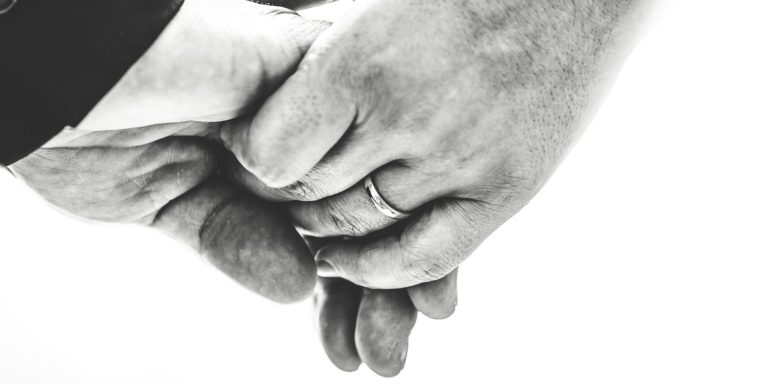
Should you react or interact?
- Sarah Weber
- September 11, 2020
- Comments Off on Should you react or interact?
Links in some blog posts may earn a commission for The Brain Cleanup Coach.
Reaction takes the thinking out of action. Reaction is instant. Interaction takes more time.
Photo by Cameron Armstrong on Unsplash
Take a moment to look a the header photo I used for this blog post. The photo is of a man in the water with whale sharks. As someone with a love, yet healthy fear of the ocean and the creatures that live in it, my reaction to this photo is to feel a bit of fear. That’s always my reaction to pictures that show the deep vastness of the ocean, the water that extends for what seems like forever off into the background.
I’m not really sure where that reaction came from. Maybe it came from seeing JAWS as a kid. Maybe it came from imaginings about rip tides pulling me out into the ocean. Regardless, that is a moment of reaction, not interaction. Let’s discuss what each of these are, and how to switch from a reactive state to interactive state.
Reaction
Why do you act the way you do? If I asked a friend of yours to tell me how you would react to a certain life situation, if they know you well they could probably give me a fairly accurate idea. That’s because your reactions are simply patterned behaviors that come from patterned thoughts, created by patterned neurons in your brain.
Having patterned reactions in your brain can be life saving. When something could truly harm you, a quick reaction can mean the difference between life and death. Babies haven’t developed all the patterned reactions they will have as adults, thus they need adults around to have survival reactions for them.
But, as can happen with a simple photo, reactions, especially about survival, can happen when there’s not really a threat. Learning to recognize when a reaction is misplaced and/or creating a dynamic that moves you in the wrong direction can move you into a state of interaction.
Interaction
Interaction is exactly what it sounds like; rather than simply defaulting to the patterned reaction your brain creates, you recognize the pattern and choose to interact with it.
This takes the form of thinking about why you are having a specific reaction, and asking the right questions to determine if it is a reaction that is useful and you want to keep, or if it’s a reaction that doesn’t serve you and needs to be changed. I’ll prompt you with some questions below, but first…
If getting interactive can be life changing, why aren’t we doing it all the time?
Efficiency
If you’ve read other blog posts, get my emails, watch my videos, you’ve heard me reference efficiencies a lot. Efficiency is just another way of referring to the patterned thoughts in your mind. Efficiency is what those patterned reactions are there for.
Reactions take the thinking out of action. Reaction is instant. Interaction takes more time. In a world full of constant input for our senses to take in, reactions save time and energy. Or at least they should.
But you also have a critical mind that thinks about your reactions, and prompts you to have critical thoughts about them. Thoughts like:
- I’m never going to do this right.
- Why can’t I just change?
- I’m too emotional.
- What’s wrong with me?
- This is just the way I am.
When this happens you end up in a negative spiral about the very efficiencies, or reactions your brain relies on for survival. But because reactions are so much more efficient than taking the time to interact, we default to them over and over.
Questions to ask
You’re probably starting to pick up on the fact that in order to tap into interaction, you’re going to have to do some work. It’s not as hard as you might think though. Just one powerful question asked about a reaction you want to explore can bring enlightenment about yourself, and open the door to changing a pattern.
A reaction is just a pattern. If you can identify the pattern and start interacting with it, the pattern will start to shift, because in your new awareness of it your brain will actually start to assist you in seeing it, and making decisions about how it needs to change to get what you want.
So, those questions. Here are a few you can try to do some detective work. If your brain doesn’t present you with an answer right away don’t get stuck on the question. Move on to another, or just move on. The next time the reaction happens, try again.
- Why am I reacting this way?
- Do I like the way this reaction makes me feel?
- Does this reaction create something good in my life?
- Do I need this reaction to this circumstance to survive?
- If I could react differently, what would that look like?
- If I could react like someone else, who would that be and why?
One parting thought; when you have a reaction to something, I want you to know that nothing has gone wrong. Your brain is simply following a patterned set of instructions about one way you can react to something in the world. There are likely a lot of other ways you could react, and other people do react, and none of those are wrong either. They are all just one way of being a human. But since you have the ability to hack into that brain of yours and affect change if you want to, why not if it means creating something you desire?
Sign up for email
Like my content? I deliver even more through email. Sign up now to get on the list.




